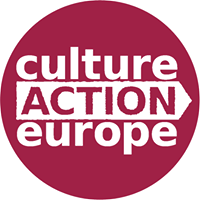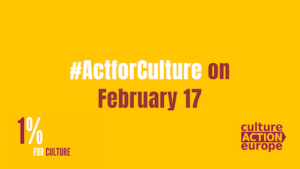 At the dawn of lockdown measures taken by governments across the globe, ietm has circulated a survey among its members to get a grip on how the new reality has affected them so far. Based on the key findings of the survey, this report, published on March 28, outlines the situation on an international scale, identifies the most burning needs of the sector in times of the pandemic and presents an overview of governments’ responses to the COVID-19 crisis. The report concludes with policy recommendations intended for EU, national and local authorities.
At the dawn of lockdown measures taken by governments across the globe, ietm has circulated a survey among its members to get a grip on how the new reality has affected them so far. Based on the key findings of the survey, this report, published on March 28, outlines the situation on an international scale, identifies the most burning needs of the sector in times of the pandemic and presents an overview of governments’ responses to the COVID-19 crisis. The report concludes with policy recommendations intended for EU, national and local authorities.
Elena Polivtseva: PERFORMING ARTS IN TIMES OF THE PANDEMIC. Status quo and the way forward. download (PDF)

 Culture Action Europe (CAE), the European Network of Cultural Centres (ENCC), IETM – International network for contemporary performing arts, and Trans Europe Halles (TEH) have published a joint policy paper on the significance of culture and the arts in non-urban and peripheral areas of Europe. Based on many years of experience, the paper identifies challenges for the many existing and potential projects in those areas, and offer policy solutions to support them.
Culture Action Europe (CAE), the European Network of Cultural Centres (ENCC), IETM – International network for contemporary performing arts, and Trans Europe Halles (TEH) have published a joint policy paper on the significance of culture and the arts in non-urban and peripheral areas of Europe. Based on many years of experience, the paper identifies challenges for the many existing and potential projects in those areas, and offer policy solutions to support them. In the run-up to the special meeting of the European Council on February 20, 2020 and on the occasion of the #ActforCulture Action Day on February 17, 2020, eight cultural organizations in Germany, coordinated by the European Music Council, made an appeal to Minister of Culture Grütters, Federal Minister of Finance Scholz and Minister of State Roth from the German Federal Foreign Office. The ITI and the IGBK as members of the European Secretariat of German Culture NGOs also signed the call.
In the run-up to the special meeting of the European Council on February 20, 2020 and on the occasion of the #ActforCulture Action Day on February 17, 2020, eight cultural organizations in Germany, coordinated by the European Music Council, made an appeal to Minister of Culture Grütters, Federal Minister of Finance Scholz and Minister of State Roth from the German Federal Foreign Office. The ITI and the IGBK as members of the European Secretariat of German Culture NGOs also signed the call.